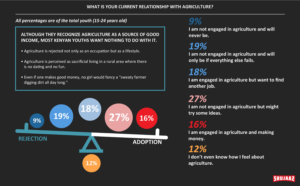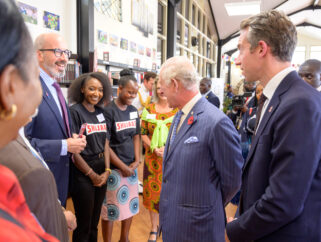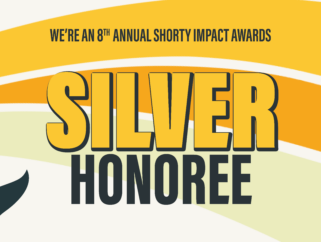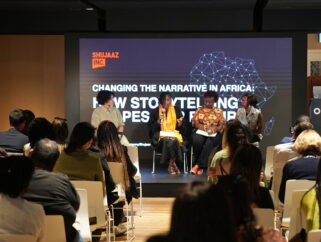#Shujaaz360: How do we make agriculture sexy and fun? [ARCHIVE]
- 17 May 2016

The international development community has been talking a lot about smallholder farmers and the support they need to “feed the world”. Over 70% of households in Sub-Saharan Africa rely on agriculture as their source of income (and food), some doing better than others. In the coming decade, there will be significantly more people to feed. In Kenya alone, the population grows by 1 million/year as child-survival rates increase due to improved vaccination and healthcare services.
Aside from “feeding the world,” smallholder farming has proven to be a lucrative business: Some young Africans report earnings of up to $25,000/month growing crops and rearing animals. In a country like Kenya, where the formal job market can absorb less than 10% of labor-market entrants and where youth is expected to create their own jobs in the informal sector, the agricultural value-chain seems like a good place to be for a young entrepreneur.
At our #Shujaaz360 event in Nairobi tomorrow, we will present our recent nationally representative survey of over 2,000 Kenyan young people (15-24 years old). It shows that when it comes to agriculture as a potential occupation, almost half of young Kenyans are in the rejection zone and another 12% don’t know how they feel about it.
In fact, the negative image of agriculture pushes young people to go to extraordinary lengths to avoid any associations with it. For example, out of 26% of young Kenyans who have an informal side job (a hustle), the bulk is doing something in agriculture. Yet, many try to avoid the words “farming” and “agriculture” when describing what they do – they can be “entrepreneurs” plucking coconut trees or casual workers “in the business of growing tomatoes for sale and consumption.”
So, even though many young Kenyans know about the benefits of being in agriculture the majority despise the concept of it; they would not admit to being a farmer; and very few see agriculture as their future occupation – unless everything else fails and they face a choice between farming and starving. How has it gotten this bad, we asked ourselves? The answer turns out to be very simple: agriculture as it is currently perceived by youth does not deliver #SexMoneyFun.
There is nothing new in the idea that young people live in a constant pursuit of #SexMoneyFun. What is new is that in Kenya Sex, Money and Fun are integrated and inseparable throughout any and all youth activities. Money is certainly desirable, but it is not worth the effort if more money does not result in more sex and more fun.
Unfortunately for the agricultural sector, the massive innovations of the past decades have had little effect on the image of an agricultural worker ingrained in young people’s mind – that image of a hardworking person who spends their time “digging [dirt] in the farm.” This unappealing picture is further amplified by the fact that the “digging” can only happen on the farm, which has to be located in a rural and likely remote area – in other words, in a place with no date-worthy girls or boys and definitely no fun. So even if a young person becomes a successful farmer with a healthy income – they cannot buy their way into a date-worthy urban peer community.
In summary, many young Kenyans continue to see agriculture as a sector of grueling manual-labor, uncertain potential for earning money and a certain loss in terms of sex and fun. The image is so powerful that even young people who have successful agricultural hustles avoid calling themselves agricultural workers to avoid damaging their self-image and image among their peers.
The finding was discomfiting and has forced us to reassess our current persuasion strategies in our Shujaaz media. And we want to share this learning at our #Shujaaz360 event in Nairobi tomorrow. Because to be persuasive to young Kenyans, a positive deviant story in agriculture cannot simply be about a wealthy young farmer. It needs to be about being young, enjoying the attention of good-looking guys or girls, having fun and being able to enjoy the good life with the money they earn as effective entrepreneurs. It needs, #SexMoneyFun. Using innovation to “feed the world”? That’s your agenda, not theirs.





